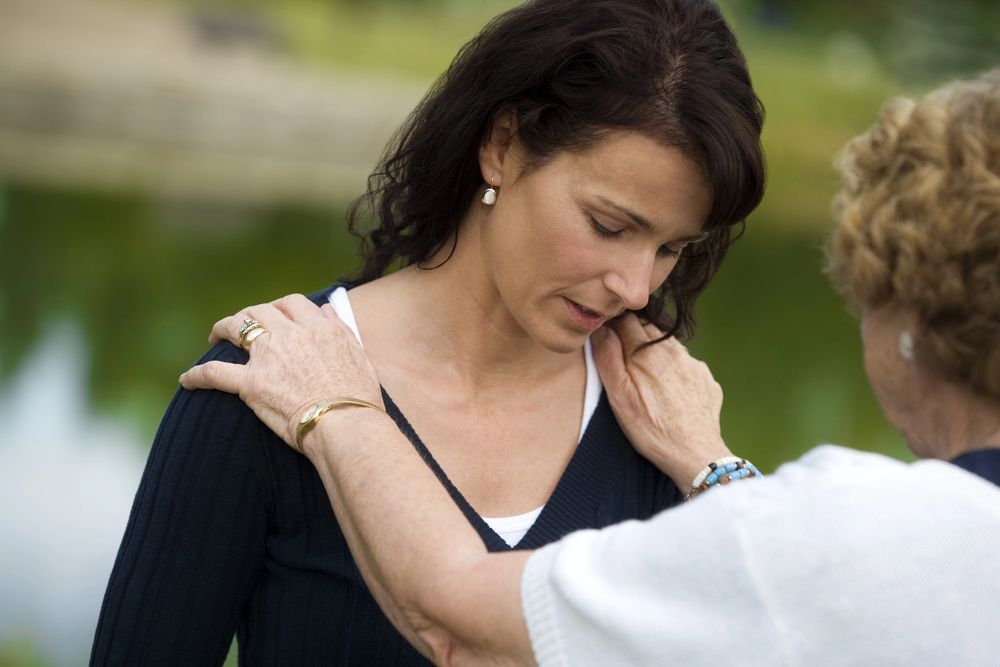Open conversations mean a healthier grieving process.

Death is one of the most universal experiences of life, and yet it remains one of the most avoided topics in conversation.
However, avoiding discussions about death can deprive us of valuable insights and emotional preparedness for when we inevitably have to deal with it. This article looks at why we need to talk about death more openly and frequently.
How these conversations prepare you:
It’s is an inevitable part of life, yet many people find themselves unprepared for its arrival. By talking about death, we can normalise it as a natural event rather than a feared and unknown entity. These discussions can reduce anxiety and fear associated with death, making it easier for individuals to face their own mortality and the mortality of their loved ones.
Ultimately, preparing for death is a profound and personal journey that involves practical, emotional, and spiritual considerations. Taking steps to prepare can help ensure that you or your loved ones final wishes are honoured, provide peace of mind, and ease the burden on loved ones.
And, talking with each other about what to expect, reminiscing on memories is a positive way to prepare. Open conversations with loved ones can provide clarity and emotional support.
Improving Quality of Life
Open conversations about death can lead to a deeper appreciation for life.
When we acknowledge the nature of our existence, we may be more inclined to live fully, prioritise meaningful activities, and cultivate deeper relationships with our loved ones. Knowing that our time is limited can motivate us to pursue our passions, resolve conflicts, and express love and gratitude more freely. Which is why having open conversations with people around death, whether its yours or the death of a loved one, can be very beneficial.
Peace of Mind
Believe it or not, having these discussions can improve the quality of end-of-life care. For example, when speaking on these topics individuals might express their wishes regarding medical treatments, palliative care, and even funeral arrangements, meaning they can receive care that aligns with their values and desires.
This communication can also alleviate the burden on family members who might otherwise have to make difficult decisions without knowing the deceased's preferences.
Furthermore, practical considerations, such as creating a will, planning a funeral, and organising personal affairs, are essential aspects of preparing for death. Open discussions can encourage individuals to take these practical steps, ensuring that their wishes are honored and reducing stress for their loved ones. Planning for death can bring peace of mind, knowing that affairs are in order and loved ones are cared for.
A Healthier Grieving Process
Talking about death helps build emotional resilience. Grieving the loss of a loved one is an inevitable part of life, but when death is openly discussed, the grieving process can be healthier and more supported. Sharing feelings and memories can create a sense of community and understanding, providing comfort and reducing feelings of isolation during times of loss.
Breaking the taboo around these conversations
Death remains something that a vast majority of people struggle to talk about, and yet, breaking this taboo can lead to more compassionate and empathetic experiences. In situations where death is openly discussed, it create a space where people feel more comfortable offering and seeking support.
Final thoughts
Talking about death is not all about dwelling on the morbid (though, these darker areas also shouldn’t be ignored); it is about embracing a fundamental aspect of our humanity. By engaging in open, honest, and compassionate conversations about death, we can enrich our lives, support one another, and face the inevitable with courage and grace. It’s time to break the silence and start the conversation!
If you'd like help, try using this free tool to store and share your legacy:
www.legacyshare.co.uk
How else can we help?
Can’t find what you’re looking for?
We’re happy to answer any questions you have. Just drop us a line, or give us a call.
01902 246 040 // 81 Tempest Street, Wolverhampton, WV2 1AA
Tailored Funerals. All Rights Reserved | Privacy Policy | Terms of Business




